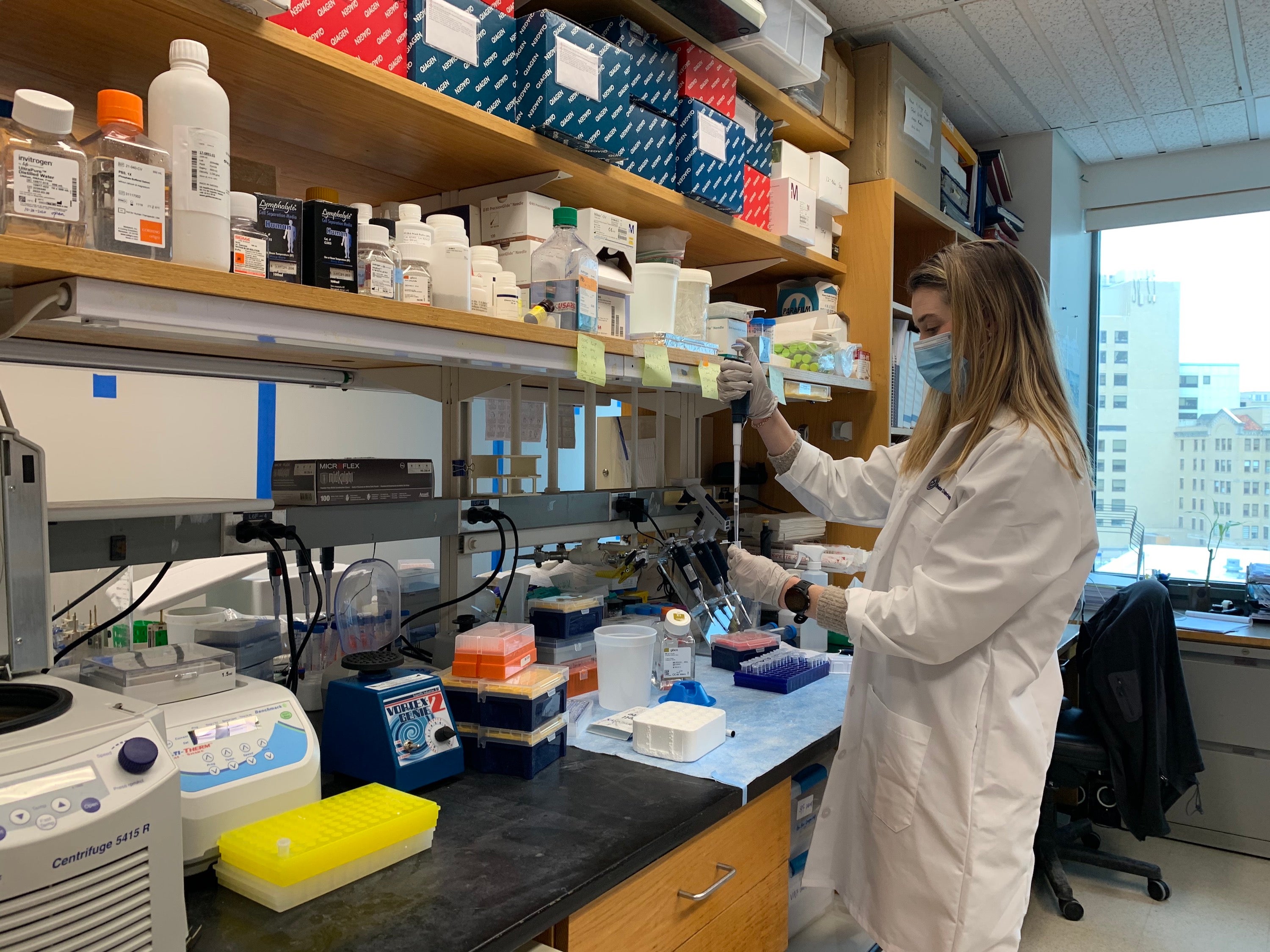News & Highlights
Topics: Clinical & Translational Research, CTSA Program, Education & Training, Five Questions, Mentoring
Five Questions with Lauren Veit Collen
A clinical fellow in gastroenterology, hepatology, and nutrition at Boston Children's Hospital learns to navigate launching a research career in gastroenterology as part of Harvard Catalyst's Clinical/Translational Research Academy.

Lauren Veit Collen, MD, is a clinical fellow in gastroenterology, hepatology, and nutrition at Boston Children’s Hospital. Since 2019, she has participated in our two-year Clinical/Translational Research Academy, an advanced training program that offers a pathway for early career clinicians and researchers to conduct independent research.
What drew you to gastroenterology and related research?
I was initially interested in general pediatrics, but that changed when as a resident I rotated on the inpatient gastrointestinal (GI) service. I was drawn to the fact that GI providers have long-term, continuous relationships with their patients and to the range of problems they face. In particular, I love caring for patients with inflammatory bowel disease (IBD), particularly those whose disease has not responded to conventional therapies. It’s rewarding to find a clinical trial drug or off-label therapy that might help them.
When I was a first-year fellow, I took care of several patients with IBD that was refractory to conventional treatments, and some who experienced very early onset IBD, defined as onset before age 6. I was intrigued by what set these patients apart from the more typical IBD. I wanted to understand how we could optimize their treatment by personalizing it to their unique disease processes. That led me to Scott Snapper, MD, PhD, who is committed to answering these questions and leads the lab where I currently work. I’m in the second of two research-focused years of the fellowship. I didn’t have research experience before this so I’m learning a lot every day.
“There’s much attention given to all aspects of a research career, such as grant writing, promotions, and avenues to success in research, which I think is important for people at my stage.”
How is the Clinical/Translational Research Academy helping you develop your career?
I was interested in a career as a grant-funded clinical/translational researcher when I began working in Snapper’s lab, but the logistics of how to make it a reality were unclear to me. This program built that roadmap for me by spelling out the many ways to navigate this process. I now feel that pursuing a career in research is more attainable.
I’ve really enjoyed getting to know a small group of about 20 clinician-researchers from all over the Harvard system, who have a wide range of clinical and research interests. They are a very creative, collaborative group of people. Also, there’s much attention given to all aspects of a research career, such as grant writing, promotions, and avenues to success in research, which I think is important for people at my stage. Another formative experience was the Harvard Catalyst Introduction to Omics course. The course director, Benji Raby,MD, continues to be a mentor to me, especially in genomics aspects of my projects.
Talk about your project on the precision medicine approaches for very early onset IBD.
I started with a detailed review of the clinical phenotypes of very early onset IBD at Boston Children’s Hospital to better understand these patients and factors that affect treatment choices and responses. For many patients we have whole-exome sequencing data, which our group reviews to understand genetic factors related to the disease. We’re especially interested in identifying monogenic causes of disease, which is more common in very early onset IBD and can have meaningful treatment implication. More recently, I’ve begun working on elucidating the role of STAT3 activation in a small group of patients with disease onset in infancy. I’m hopeful that one day this work may inform precision medicine treatment approaches for these patients.
“I was interested in a career as a grant-funded clinical/translational researcher, but the logistics of how to make it a reality were unclear to me. This program built that roadmap for me by spelling out the many ways to navigate this process.”
What’s been the impact of COVID on your patients and your research?
I’m still doing a lot of telemedicine, which has its pros and cons. I certainly miss the in-person patient interactions. But it’s opened up opportunities to interface with patients whom I might not have encountered before. For example, with Snapper, who is also one of my clinical mentors, I’ve done telemedicine consults for patients throughout the U.S. and around the world. These patients in the past would have flown to Boston for a clinic visit.
Enrolling patients in our studies is a bit more challenging virtually. But we have work-arounds. We now mail whole-exome sequencing kits to patient’s houses so they can do a cheek swab at home and mail it back to us.
Why is your favorite day of the year Boston Marathon Monday? Has running kept you sane the past year?
Yes, running is where I find my peace and often when I have my best ideas. The marathon is such an exciting distance and I love the transformation I feel over many months of training. The spirit and energy in Boston on Marathon Monday are incredible and I’ve been inspired by my experiences of the day as both a spectator and an athlete. I love watching everyone from the professionals in front, to the charity runners, often first-time marathoners who have taken on something huge for a cause greater than themselves. I ran it in 2018, the year that it poured, and I hope to run it again this year in October, if road races are allowed by then. I train with a local team called the Heartbreakers (after Heartbreak Hill) and they make it so fun.

